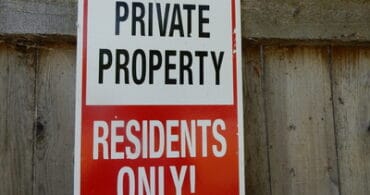Insights - Landlords

A Landlord’s Guide to Right of Entry
A lot of landlords are of the opinion that because they own a property, they have an automatic right of entry without first gaining permission from the tenant. There are however clear rules and regulations that dictate when a landlord is allowed, and not allowed, to enter a property, and when tenant permission is required to do so.
Read More
Deposit Replacement Schemes Explained
It is often challenging for prospective tenants to find the necessary deposit to secure a property. Even though the Tenant Fees Act 2019 capped deposits at five weeks’ rent, it can still be a considerable sum to gather together. It is no wonder then that the deposit replacement scheme has become a viable alternative for tenants. But how do these schemes work, and should you be relying on them as a landlord?

How UK Planning Law Reforms Could Benefit Property Investors
In its report titled Planning for the Future published in late summer, the government detailed plans for upcoming changes to the planning system in England. The reforms are set to streamline and modernise the planning process and should also spell good news for anyone interested in property investment. Let’s explore why.

Landlords: How to Winter Proof Your Rental Property
With temperatures plummeting, so the risk to property damage increases. Winter is therefore a vital time for landlords to put measures in place to safeguard their investment. Let’s take a look at some of the most essential steps you should be taking to protect your rental property during the harshest months of the year.

The Lowdown on Landlord Insurance
Landlord insurance is designed to cover the specific risks faced when renting buy-to-let property. There are different types of cover that address the various types and levels of risks. It’s important as a landlord to know what’s available in terms of insurance, and to ensure you know what you are, and more importantly what you are not, covered for.

What Expenses can a Landlord Offset Against Tax?
As a landlord, there are ways of reducing your tax bill by deducting some of the expenses incurred as a result of letting property. Read on to learn what these allowable landlord expenses are, what you can claim, and how to go about it.

6 Ways to Maximise Rental Yield
Capital appreciation and rental yield dictate success as a property investor, and form a vital factor for lenders when making a decision about affordability for a buy-to-let mortgage. If you are investing with a view to long term gains through letting, you will want to look closely at how you can maximise your rental yield. Read on as we share our top tips on how this can be achieved.

How COVID-19 has Impacted Landlord Confidence in the UK
A recent survey by the National Residential Landlords Association (NRLA) has revealed that almost two thirds of private landlords in England and Wales are expecting their rental businesses to be impacted in a negative way due to the COVID-19 pandemic. As a result, there is a call for the Government to help sustain tenancies by providing the finances needed to pay off COVID related arrears. Alternative suggestions are being made to help bring things back on track, and guaranteed rent for landlords could be one key idea.

Lockdown Latest: Rental Market Open for Business
Housing secretary Robert Jenrick has announced that the rental market in England will stay open during the new four-week lockdown starting 5th November. Renters remain able to move, letting agents and removal firms can continue to do their jobs, and property maintenance and repair contractors, cleaners and inventory clerks can enter properties, providing they adhere to COVID-secure guidelines.

How Landlords can Ensure On-Time Payments
Being a landlord has many benefits, including providing an ongoing income. Of course, this is dependent on getting paid regularly. Which raises a key question, how can landlords ensure on-time payments? Let’s take a look at some top strategies to secure that regular monthly income.






